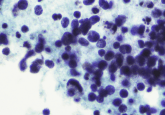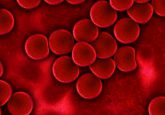Blood-based biomarker has implications for diagnosis of Parkinson’s disease
Researchers from the University of California, Los Angeles publish research on biomarker that could differentiate between fast and slow progression of Parkinson’s disease.
In a recent research paper published online in PLoS ONE, a group of researchers at the University of California, Los Angeles (UCLA; CA, USA) have identified a biomarker in blood samples of Parkinson’s disease patients that could help predict the speed of disease progression.
As senior author Beate Ritz (Fielding School of Public Health, UCLA) explains, “The course of Parkinson’s can be highly variable. Some patients can become wheelchair-bound, demented or severely depressed within just a few years after diagnosis, while others are spared for longer periods.”
The team analyzed blood samples from 250 patients in the early stages of the disease, following them for 5–10 years as their condition progressed. From this sample, 40 patients were designated to slow-progressing and 40 to fast-progressing Parkinson’s disease.
Using high-resolution MS techniques, the researchers looked for metabolic or chemical fingerprints in the blood samples, comparing them to 20 healthy standards. They discovered that N8-acetyl spermidine was elevated in fast-progressors – suggesting that this could be a future biomarker to predict the speed of disease progression.
Ritz explained how their findings have implications in the understanding of how the disease progresses, “Such biomarkers reflecting the pathogenesis of Parkinson’s are greatly needed due to the fact that the degeneration of the neurons in the brain that produce dopamine — a hallmark of Parkinson’s disease — is an irreversible process. In addition, that process begins up to 20 to 30 years before imaging can identify any brain changes.”
Ritz continued, explaining the team’s hope for their biomarker, “Our hope is that such biomarkers may aid in earlier detection and more effective disease management, and that they will lead to new prevention strategies and improved clinical trials for new treatments based on a better understanding of how the disease progresses.”
Source: UCLA, Emory researchers find a chemical signature for ‘fast’ form of Parkinson’s.





